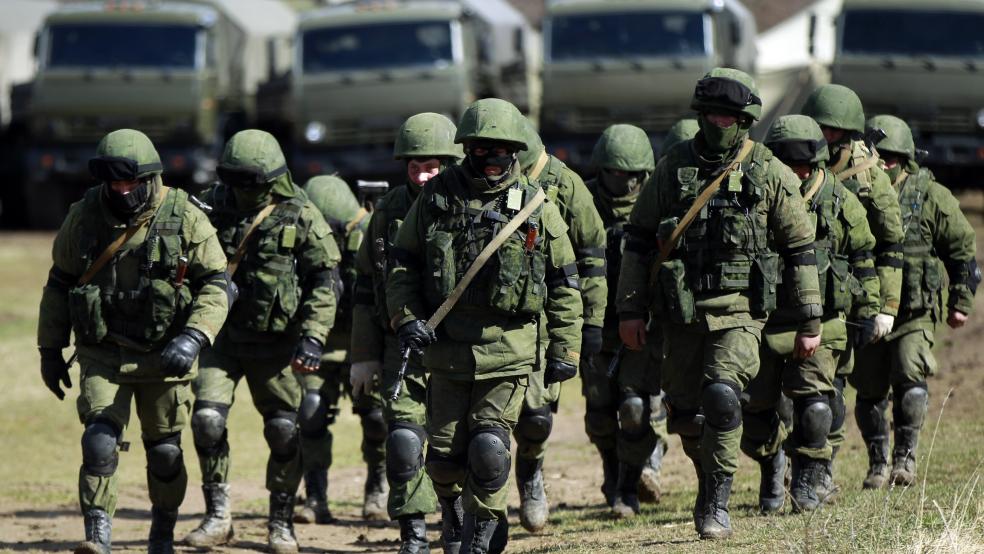The United States and the European Union on Monday slapped sanctions on Russian and Ukrainian officials deemed responsible for Crimea’s effort to join Russia, following through on a pledge by the West before Sunday’s secession referendum in Crimea.
President Obama told reporters Monday morning that “Ukraine’s sovereignty and territorial integrity must be respected, and international law must be upheld.” He called the referendum a “clear violation” of Ukraine’s constitution as well as international law.
Accordingly, he told reporters in the White House briefing room, the United States is implementing “a series of measures that will continue to increase the cost on Russia” of its intervention in Ukraine.
Related: Confusion Reigns Over Path Forward on Crimea
Obama warned that “further provocations” by Moscow would only isolate Russia further. But he said he still holds out hope for a diplomatic resolution based on the withdrawal of Russian forces to their bases in Crimea, the introduction of international monitors into the region and a dialogue between Moscow and the government in Kiev.
The sanctions ordered by the Obama administration include asset freezes and a ban on travel to the United States for seven Russian and four Ukrainian officials, including ousted Ukrainian president Viktor Yanukovych. The sanctions by the European Union apply to 21 officials, although those people have not yet been identified.
“Today’s actions send a strong message to the Russian government that there are consequences for their actions that violate the sovereignty and territorial integrity of Ukraine, including their actions supporting the illegal referendum for Crimean separation,” the White House said in a statement.
U.S. officials said those being sanctioned were either Putin “cronies” or political leaders who have been instrumental in either promoting the referendum in Crimea or military escalations. A senior administration official, speaking on condition of anonymity, said the E.U. made “slight different choices” in its determination of whom to sanction.
The “lists have overlap both in terms of names and in terms of categories of people,” the official said.
The announcement in Washington came as E.U. foreign ministers met in Brussels to decide how hard to push Moscow a day after Crimeans voted to secede in a referendum that was condemned in Washington and in capitals across Europe.
Related: Russian Ties to Ukraine Go Much Deeper Than Gas
A European Union statement called on Russia to end its military buildup in Crimea and to decline to annex the territory, warning of “additional and far-reaching consequences for relations in a broad range of economic areas” if Russia does not back down.
Lithuanian Foreign Minister Linas Linkevicius said on Twitter that there would be more penalties imposed by Europe within days.
Several Eastern European nations have pushed for particularly tough sanctions, fearing that unchecked Russian advances in Ukraine could set a bad precedent that could directly affect their borders. But European Union heavyweights such as Germany and Britain have deep economic ties to Russia, and officials have spent days wrangling over whether the sanctions should hit at Putin’s inner circle.
The Obama administration promised last week to exact a cost if the vote in Crimea were held — even before new Russian military exercises on Ukraine’s eastern and southern borders and Saturday’s seizure of a Ukrainian gas plant just beyond Crimea’s northern boundary.
The question for the West is whether harsh retribution now will make Russian President Vladimir Putin more or less likely to desist from further action. Although he has so far been impervious to American and European threats, U.S. officials think that the cost the upheaval has already imposed on the Russian economy will become unbearable if Putin does not yield.
The West could also suffer costs if Russia cuts off energy supplies to Europe and further squeezes the Ukrainian economy. But Western officials say that is a price they are willing to pay and have pledged economic support to Ukraine.
This article originally appeared in The Washington Post.
Read more at The Washington Post:





